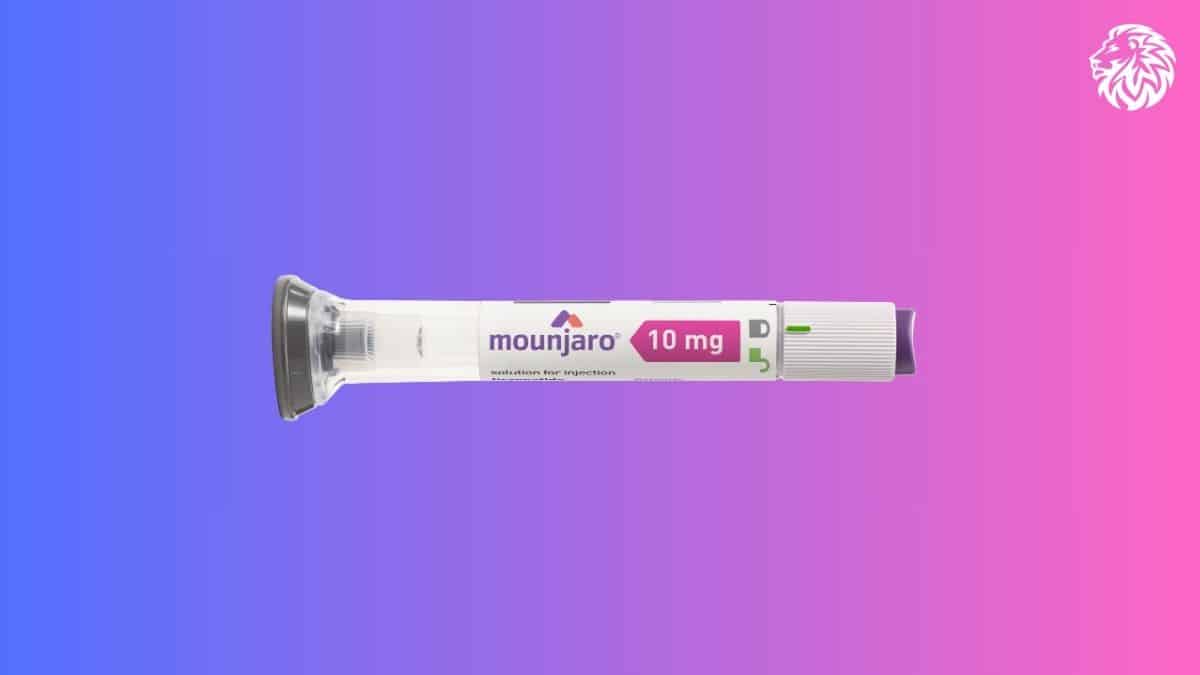Mounjaro, a brand name for tirzepatide, is making waves in the medical community, primarily as a medication for managing type 2 diabetes. Approved by the FDA in 2022, this injectable drug has garnered attention for its effectiveness in controlling blood sugar levels and even promoting weight loss, thanks to its dual mechanism that mimics two natural hormones. For people with type 2 diabetes, Mounjaro offers a comprehensive approach to blood sugar regulation, with promising potential for those with obesity as well.
What is Mounjaro?
Mounjaro (tirzepatide) is an injectable medication prescribed to help manage blood sugar levels in adults with type 2 diabetes. It belongs to the drug class known as incretin mimetics, which mimic the effects of hormones that regulate glucose metabolism and appetite. Mounjaro is not for people with type 1 diabetes, as it relies on the presence of functioning insulin production.
Mechanism of Action: How Does Mounjaro Work?
Mounjaro targets two hormones in the body: GLP-1 (glucagon-like peptide-1) and GIP (glucose-dependent insulinotropic polypeptide). These hormones play significant roles in managing blood sugar levels and regulating appetite. Here’s how Mounjaro impacts the body to help manage diabetes and support weight loss:
- Enhanced Insulin Production: Mounjaro stimulates the pancreas to release more insulin when blood sugar levels are elevated, helping reduce blood glucose levels effectively.
- Reduced Glucose Production in the Liver: It lowers the amount of sugar released by the liver, a common cause of high blood sugar levels in type 2 diabetes.
- Slows Digestion: Mounjaro also slows down the digestive process, which can increase the feeling of fullness, helping people avoid overeating. This unique feature has made it beneficial for weight loss as well.
These combined effects not only regulate blood sugar but also help manage weight, making Mounjaro unique among diabetes medications.
How to Use Mounjaro
Mounjaro is administered via a subcutaneous injection, typically once a week. It’s available in various doses, ranging from an initial 2.5 mg to 15 mg. After an initial dose, doctors usually recommend gradually increasing the dose every four weeks, depending on the patient’s blood sugar levels and tolerance.
Dosage Forms
Mounjaro is available in prefilled pens in the following doses:
- 2.5 mg, 5 mg, 7.5 mg, 10 mg, 12.5 mg, and 15 mg per 0.5 mL, single-use pens.
It’s essential to store Mounjaro properly—usually refrigerated between 36°F and 46°F (2°C and 8°C). However, the pens can be kept at room temperature for up to 21 days if needed.
Mounjaro and Weight Loss: A Promising Side Effect
Mounjaro has gained considerable attention for its dual benefits in managing blood sugar and facilitating weight loss, a feature that is particularly promising for individuals with type 2 diabetes who also struggle with obesity. Originally approved as a diabetes treatment, Mounjaro has demonstrated significant weight loss effects in clinical trials, leading to further studies and the eventual creation of Zepbound, a medication specifically aimed at weight loss but containing the same active ingredient, tirzepatide. Here’s a deeper look into how Mounjaro supports weight loss, the results of clinical trials, and what this means for patients seeking weight management options.
How Mounjaro Promotes Weight Loss
The weight loss benefits of Mounjaro stem from its action on two hormones, GLP-1 and GIP, that help regulate appetite and digestion. By targeting these two pathways, Mounjaro doesn’t just lower blood sugar levels—it also impacts feelings of hunger and satiety, which are often challenges for those trying to manage their weight.
- Increased Satiety: Mounjaro slows down the rate at which food moves through the digestive system, prolonging the feeling of fullness after meals. This effect can help reduce overall calorie intake without requiring extreme dietary restrictions, which is particularly beneficial for patients with obesity or those at risk for it.
- Reduced Hunger Signals: The medication also influences brain signals related to appetite, reducing feelings of hunger. For individuals with type 2 diabetes, who may struggle with increased appetite due to blood sugar fluctuations, this can be a valuable tool for curbing cravings and avoiding overeating.
- Lower Blood Sugar, Lower Insulin Levels: Mounjaro helps reduce the amount of sugar released by the liver and lowers overall insulin levels, which can minimize fat storage, particularly around the abdomen—a common issue for those with type 2 diabetes and metabolic syndrome.
Clinical Trials and Weight Loss Outcomes
The clinical trials that evaluated Mounjaro’s impact on weight loss have shown impressive results. In the Phase 3 SURMOUNT-1 trial, participants taking Mounjaro experienced substantial weight reductions. Here’s a summary of the findings:
- Dose-Dependent Weight Loss: Patients using a 15 mg dose of Mounjaro lost an average of 20.9% of their body weight over 72 weeks, compared to only 3.1% for those on a placebo. The weight loss percentage varied based on dosage, with even lower doses producing meaningful results.
- Consistency Across Populations: The study included patients with obesity or those overweight with a weight-related health issue, showing that Mounjaro’s weight loss effects aren’t limited to a specific subset of patients. This consistency across diverse groups suggests that it could be effective for a wide range of people struggling with weight.
- Effective Without Diabetes: Another significant finding was that Mounjaro’s active ingredient, tirzepatide, had weight loss effects even in patients without diabetes. This led to the development and approval of Zepbound specifically for weight management, marking an expansion of tirzepatide’s application beyond blood sugar regulation alone.
Comparing Mounjaro with Other Weight Loss Medications
In comparison to other diabetes drugs known to aid weight loss, like Ozempic and Wegovy, Mounjaro has shown more substantial results in clinical trials. For instance, while Wegovy (another GLP-1 agonist) leads to about a 15% reduction in body weight, Mounjaro’s highest doses were linked to a nearly 21% weight loss. This makes Mounjaro particularly appealing for individuals seeking substantial weight reduction, especially when managing both diabetes and obesity simultaneously.
Another point of comparison is the timeline; Mounjaro’s weight loss effects tend to be noticeable within the first few months, with significant weight reduction often achieved within 72 weeks. For patients with type 2 diabetes, losing weight can improve insulin sensitivity, reduce blood sugar levels, and alleviate some of the pressures on the cardiovascular system.
Expanding the Use of Mounjaro for Weight Management: The Role of Zepbound
As the impressive weight loss effects of Mounjaro became clear, it spurred interest in developing a related product specifically for weight loss. Eli Lilly, the manufacturer, introduced Zepbound, a new formulation of tirzepatide specifically targeted at obesity and weight management. This approval means that patients looking for weight loss solutions who don’t have diabetes now have access to tirzepatide’s benefits without needing a diabetes diagnosis.
Implications for Patients and Healthcare Providers
For healthcare providers, Mounjaro offers a powerful option that can address multiple health issues in one treatment, especially for patients with both type 2 diabetes and obesity—a combination that often complicates treatment plans. Mounjaro can simplify management by reducing the need for multiple medications, potentially lowering both blood sugar and body weight effectively.
For patients, this dual benefit can lead to more sustainable weight loss, improved energy levels, and better quality of life. Weight loss with Mounjaro can also support better diabetes outcomes, making it easier to reach blood sugar goals, reduce the need for insulin, and even decrease the risk of diabetes-related complications.
Important Considerations and Next Steps
While Mounjaro has shown excellent results in supporting weight loss, it’s important for patients and doctors to be aware of potential side effects. These may include nausea, vomiting, and gastrointestinal discomfort, particularly when first starting the medication or increasing the dose. Patients should follow up regularly with healthcare providers to monitor progress, adjust doses as needed, and address any side effects promptly.
For individuals looking to lose weight, Mounjaro may be an appealing option, especially if they also have type 2 diabetes or are managing other metabolic conditions. The results from studies suggest that with proper medical supervision, Mounjaro can offer life-changing benefits, improving both metabolic health and overall well-being.
Side Effects of Mounjaro: What to Expect
Like any medication, Mounjaro comes with possible side effects, which can range from mild to serious. Common side effects may include:
- Nausea
- Diarrhea
- Reduced appetite
- Vomiting
- Constipation
- Stomach pain
These side effects are usually temporary, often subsiding as the body adjusts to the medication. However, more serious side effects can also occur, warranting immediate medical attention.
Serious Side Effects to Be Aware Of
- Allergic Reactions: Some users may experience severe allergic reactions, with symptoms like hives, difficulty breathing, and swelling of the face, lips, or throat.
- Thyroid Tumors: Studies have shown that Mounjaro may increase the risk of thyroid tumors, including cancer, especially in those with a family history of thyroid disease. It’s crucial to report any lumps, swelling, or trouble swallowing to a healthcare provider.
- Pancreatitis: Mounjaro has been associated with inflammation of the pancreas, a serious condition that can present as severe stomach pain radiating to the back.
- Low Blood Sugar (Hypoglycemia): When taken with other diabetes medications, particularly insulin, Mounjaro can cause low blood sugar, characterized by symptoms like dizziness, sweating, and a rapid heart rate.
- Kidney Issues: Dehydration due to severe vomiting or diarrhea while on Mounjaro can lead to kidney problems. If you experience decreased urine output, swelling in the feet or ankles, or shortness of breath, consult your doctor.
Vision Changes and Gallbladder Problems
Mounjaro may also exacerbate diabetic retinopathy, a common diabetes-related vision problem. It’s essential to have regular eye check-ups while on Mounjaro to detect any potential changes in vision. Some patients have also reported gallbladder issues, so it’s advisable to consult a healthcare provider if symptoms like abdominal pain, nausea, or pale-colored stools arise.
Who Should Avoid Mounjaro?
Certain individuals should avoid Mounjaro, particularly those with a personal or family history of medullary thyroid carcinoma (MTC) or multiple endocrine neoplasia syndrome type 2 (MEN 2). Additionally, Mounjaro is not recommended for individuals with type 1 diabetes or those who have had pancreatitis.
Before starting Mounjaro, it’s crucial to inform your healthcare provider about all preexisting health conditions and any medications or supplements currently in use, especially if these include other diabetes treatments, birth control, or medications requiring steady absorption in the digestive tract.
Safety Precautions and Drug Interactions
When using Mounjaro, keeping your healthcare provider informed about all medications is essential to avoid potential drug interactions. Mounjaro may interfere with the effectiveness of birth control pills due to its effect on digestion. Consequently, women using birth control pills should consider using additional methods for at least four weeks after starting Mounjaro or after any dosage increase.
If you consume alcohol, be mindful that it can affect blood sugar levels, potentially leading to hypoglycemia or affecting Mounjaro’s efficacy. It’s often recommended to limit alcohol intake.
Related: Wegovy, Zepbound, Saxenda, Ozempic
Conclusion: The Benefits and Considerations of Mounjaro
Mounjaro represents a significant advancement in the treatment of type 2 diabetes and offers promising results for weight management. With its unique mechanism of targeting two hormones, Mounjaro provides a multifaceted approach to blood sugar regulation, appetite control, and weight loss. However, it’s essential to understand the potential side effects and to communicate regularly with your healthcare provider to ensure that Mounjaro is safe and effective for you.
By integrating Mounjaro with a balanced diet, regular exercise, and medical guidance, those managing type 2 diabetes or obesity have new possibilities for better health and quality of life. As always, an individualized approach under a doctor’s supervision is the best path forward when navigating new treatment options.
Frequently Asked Questions About Mounjaro
How Quickly Does Mounjaro Work?
While Mounjaro begins to lower blood sugar levels almost immediately, it may take up to 12 weeks to see optimal results in terms of blood glucose control and weight loss. Consistency is key, so it’s vital to adhere to the prescribed schedule.
Is Mounjaro Safe During Pregnancy?
Currently, it’s unclear whether Mounjaro is safe for pregnant women or nursing mothers. If you are pregnant, planning to become pregnant, or breastfeeding, it’s best to discuss these considerations with your healthcare provider to ensure the safety of both you and your child.
How Does Mounjaro Compare to Other Diabetes Medications?
Compared to other diabetes medications like Ozempic, Mounjaro has shown more significant weight loss effects in clinical trials. Although both drugs work to control blood sugar, they have different approval statuses: Ozempic is approved for cardiovascular risk reduction, while Mounjaro has not yet received this specific indication.
How long does it take to see results with Mounjaro?
Mounjaro typically begins to lower blood sugar levels shortly after starting treatment, but it may take 8 to 12 weeks to see full blood sugar control. For weight loss, noticeable effects may start within a few months, with optimal results often seen around 72 weeks.
Can Mounjaro be used for weight loss alone?
Mounjaro is FDA-approved for managing type 2 diabetes, but its active ingredient, tirzepatide, has shown promising weight loss effects. A separate medication, Zepbound, has been approved specifically for weight management without diabetes.
Is Mounjaro safe for individuals without diabetes?
While Mounjaro is currently only approved for type 2 diabetes, tirzepatide (its active ingredient) has been found safe for weight loss in clinical trials, leading to the approval of Zepbound for non-diabetic patients with obesity.
Can I take Mounjaro with other diabetes medications?
Mounjaro can be used alongside other diabetes medications, but it’s essential to monitor blood sugar levels closely, as combining it with insulin or other drugs may increase the risk of hypoglycemia. Always consult with a healthcare provider for safe dosing combinations.
Does Mounjaro interact with any foods or beverages?
There are no specific dietary restrictions with Mounjaro. However, alcohol may impact blood sugar levels, potentially affecting Mounjaro’s effectiveness or increasing the risk of hypoglycemia.
What should I do if I miss a dose of Mounjaro?
If you miss a dose, take it as soon as you remember, provided it’s within four days of the missed dose. If more than four days have passed, skip the missed dose and resume your regular schedule. Avoid taking two doses within three days.
Can I switch the day of the week for my Mounjaro dose?
Yes, you can change your dose day, as long as there’s at least a three-day gap between doses. This flexibility makes it easier to fit Mounjaro into your weekly schedule.
What are the most common side effects of Mounjaro?
The most common side effects include nausea, diarrhea, decreased appetite, and constipation. These are generally mild and may lessen as your body adjusts to the medication.
Does Mounjaro affect fertility or pregnancy?
It’s currently unknown if Mounjaro affects fertility, pregnancy, or breast milk. If you are pregnant, planning to become pregnant, or breastfeeding, consult your doctor to discuss risks and benefits.
How does Mounjaro differ from other GLP-1 agonists like Ozempic or Wegovy?
Mounjaro is a dual GIP and GLP-1 agonist, meaning it targets two hormones to regulate blood sugar and appetite. This dual mechanism is unique to Mounjaro, which has shown greater weight loss effects than Ozempic or Wegovy in clinical studies.
Are there specific populations that should avoid Mounjaro?
Mounjaro is not recommended for people with type 1 diabetes, a history of medullary thyroid carcinoma, or those with Multiple Endocrine Neoplasia syndrome type 2 (MEN 2). Additionally, those with a history of pancreatitis should consult their doctor before starting Mounjaro.
Can I stop taking Mounjaro if my blood sugar levels improve?
Mounjaro is meant for long-term management of type 2 diabetes, and stopping it abruptly could lead to blood sugar increases. Discuss any changes in your treatment plan with your healthcare provider.
How is Mounjaro stored?
Mounjaro should be refrigerated (between 36°F and 46°F or 2°C and 8°C) in its original packaging to protect it from light. If needed, it can be kept at room temperature (up to 86°F or 30°C) for up to 21 days.
Is there financial assistance or a discount program for Mounjaro?
Eli Lilly offers a savings card that can reduce the cost for eligible patients with commercial insurance. Ask your doctor or pharmacist about eligibility and available discount options.
Can I travel with Mounjaro?
Yes, Mounjaro can be stored at room temperature for up to 21 days, making it easier for travel. Keep it in a cool place and avoid exposing it to extreme temperatures.
References
- Eli Lilly and Company. (n.d.). Mounjaro. Retrieved from https://mounjaro.lilly.com/
- U.S. Food and Drug Administration. (2021, June 4). FDA approves new medication for chronic weight management. Retrieved from https://www.fda.gov/news-events/press-announcements/fda-approves-new-medication-chronic-weight-management
- European Medicines Agency. (2022). Mounjaro: EPAR – Product information. Retrieved from https://www.ema.europa.eu/en/medicines/human/EPAR/mounjaro
- U.S. Food and Drug Administration. (2022). Mounjaro (tirzepatide) injection: Full prescribing information (NDA 215866). Retrieved from https://www.accessdata.fda.gov/drugsatfda_docs/label/2022/215866s000lbl.pdf
- Eli Lilly and Company. (2022, June 3). Tirzepatide reduced the risk of developing type 2 diabetes by 94% in adults with prediabetes and obesity or overweight. Retrieved from https://investor.lilly.com/news-releases/news-release-details/tirzepatide-reduced-risk-developing-type-2-diabetes-94-adults
- Centers for Disease Control and Prevention. (2022, August 30). About diabetes. Retrieved from https://www.cdc.gov/diabetes/about/
- Eli Lilly and Company. (2022). Mounjaro (tirzepatide) injection: Medication guide. Retrieved from https://pi.lilly.com/us/mounjaro-us-mg.pdf







